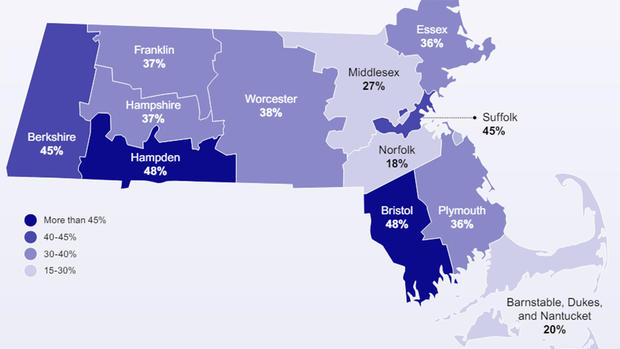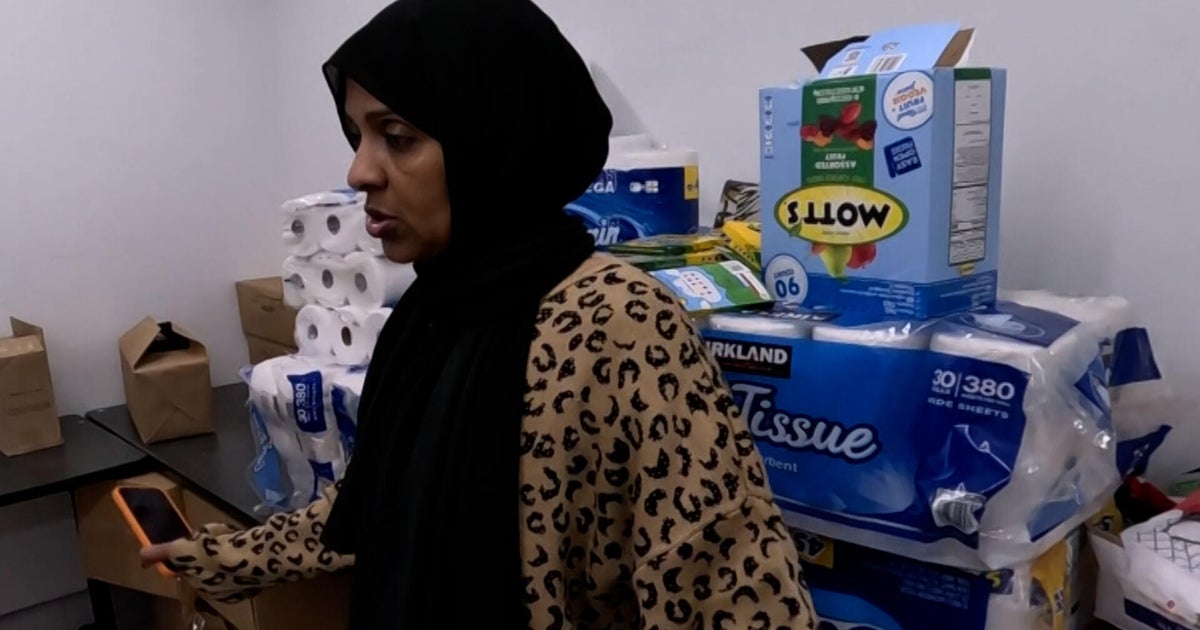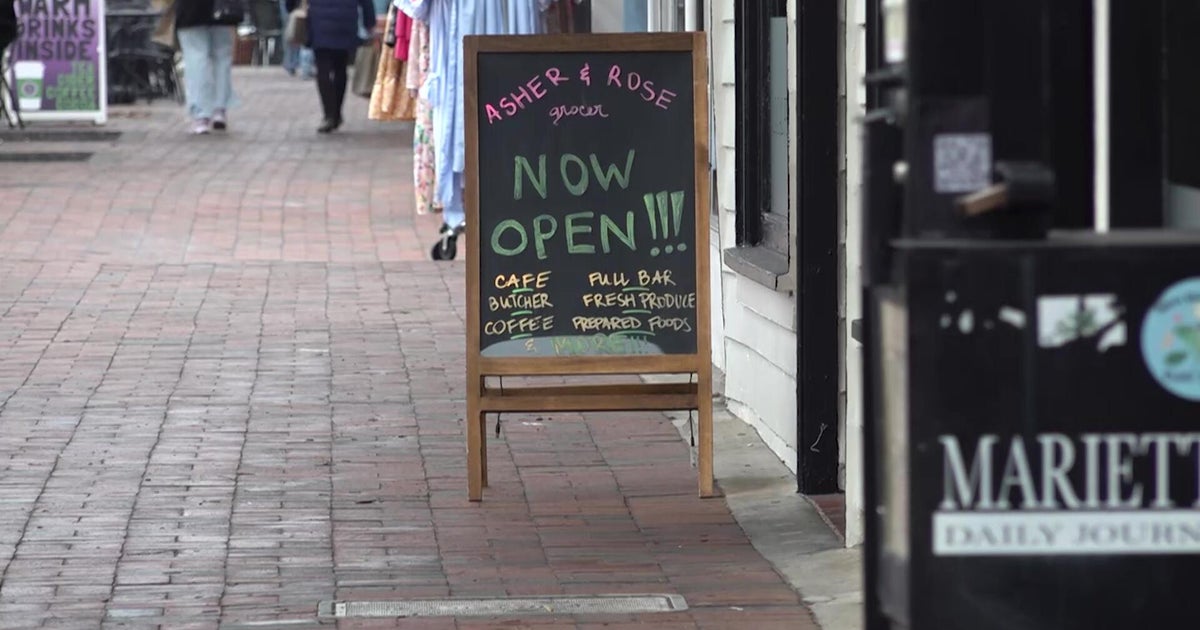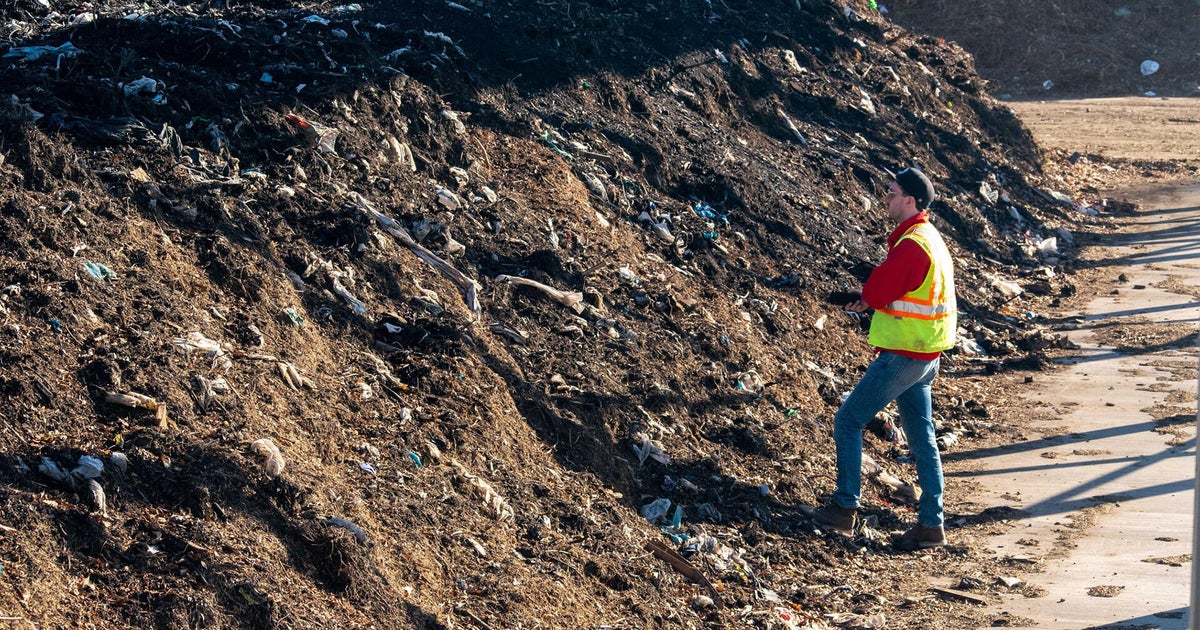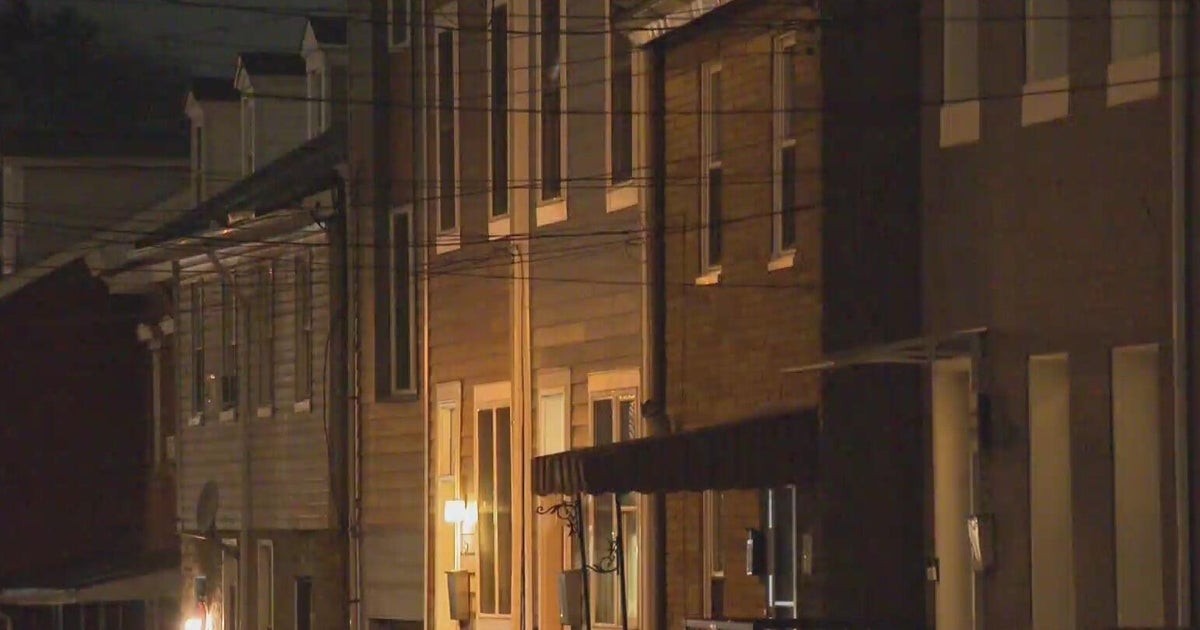Map shows where food insecurity is highest in Massachusetts
BOSTON - Hunger is on the rise in Massachusetts, and the high cost of groceries is a big reason why, according to a new report from the Greater Boston Food Bank.
The study found that roughly 1.9 million adults - about one-third of the adult population in Massachusetts - reported running out of food or not having enough money to buy food in 2023. That's an increase from 1.8 million in last year's estimate.
The report said Massachusetts had the sixth-highest increase in grocery prices in the past year. Households experiencing food insecurity estimated that they would need about $60 more per week or $2,000 more a year to be able to buy enough food.
Where are people struggling to afford food in Massachusetts?
Every county in the state saw "significant food insecurity" last year, the study found. In Suffolk, Bristol, Hampden and Berkshire counties, the study found at least 45% of adults are struggling to buy food.
Norfolk, Cape Cod and the Islands, and Middlesex counties were the counties seeing the least amount of food security, according to the report.
The study found "stark racial disparities" in hunger across Massachusetts households. Just 26% of Asian households and 30% of White households reported food insecurity, compared to Black (51%), Hispanic (56%) and Native American (62%) households.
Additionally, 56% of LGBTQ+ households said they experienced food insecurity last year.
How are people coping with high food prices in Massachusetts?
Eight of 10 food insecure households receiving SNAP benefits said they are still looking for help affording groceries, according to the report.
"Due to the high cost of living across Massachusetts, households experiencing food insecurity continue to make significant financial trade-offs and utilize a variety of coping strategies to alleviate hunger," the report states.
More than 60% of those who said they face food insecurity reported that they had to choose between paying for groceries and utilities, transportation and mortgage/rent.
To be able to afford food, 86% said they bought the cheapest food available, 60% said they got help from family or friends, 46% said they sold or pawned personal property and about 45% said they've watered down food or drinks, including infant formula.
The study also cited the "overwhelmingly positive" impact of free school meals in Massachusetts, as one in three food insecure households with children in the state reported that a kid went hungry, skipped a meal or didn't eat for an entire day because there wasn't enough money for food.
